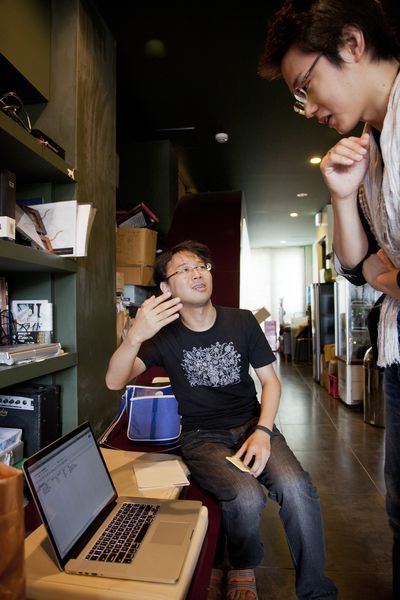Japanese rejecting careers

TOKYO – Before last year’s devastating magnitude 9.0 earthquake, college student Tatsunori Hirota envisioned a life as a “salaryman,” one of the nation’s countless tradition-bound corporate foot soldiers in white shirts and black slacks who fill the city’s subways every morning and night commuting to and from nondescript offices.
But the psychological aftershocks of the disaster have created a new sense of urgency among a small but growing number of young professionals and college students like Hirota. They are abandoning the path of the corporate salaryman to chart their own way by launching tech startups.
“We lost family,” said Hirota, a Tokyo University economics student who, after the quake, began studying programming and co-founded an e-learning website, Mana.bo.
“We felt death closer than before,” he said. “Now we don’t want to work for the big company. We want to work for ourselves. The biggest risk is that something could happen to you before you do something you really love. It could happen anytime, anywhere.”
The shift in attitude comes as Japan’s technology sector struggles to remain relevant in a global economy that is leaving it behind. Observers say Japan’s inward-looking and risk-averse culture has for years dampened the nation’s entrepreneurial spirit. In its 2010 report, the Global Entrepreneurship Monitor ranked Japan lowest among advanced economies in terms of attitudes toward launching new businesses. It noted that Japanese were the least likely to consider becoming entrepreneurs.
In the aftermath of the earthquake and tsunami, which cost more than 13,000 lives and triggered widespread power outages and radioactive leaks from a nuclear power plant, there was a “shattering of trust in big institutions” across Japanese society, said Phil Libin, CEO of Mountain View, Calif.-based Evernote, a provider of note-taking and archiving technology that has operations in Tokyo.
That collapse of faith extended to large tech companies, many of whom have broken with long-held promises of lifelong employment with mass layoffs.
Government officials, academics and industry leaders say that if the nation is to regain its technological mojo, it needs to jump-start an entrepreneurial culture, and that includes tapping into Silicon Valley.
“To come to Silicon Valley, that is the dream of many startup companies and entrepreneurs in Japan,” said Yukiko Pollard, general manager of Tokyo-based image processing software company Morpho, which opened a San Jose office this year.
But young Japanese entrepreneurs face daunting obstacles. In Japan, there is nothing resembling the entrepreneurial ecosystem of Silicon Valley. “In Silicon Valley, you can get $20 million (in startup funding) without owning a suit. In Japan, it’s much harder to raise money,” Libin said.
For sure, there is brainpower aplenty in Japan, whose engineering brilliance has never been in question.
“The creativity of the Japanese people is as strong as it has ever been,” said Allen Miner, founder of SunBridge Partners, a Sunnyvale, Calif., venture capital firm pursuing startups in Japan. “The Japanese are as ambitious as ever. Pretty much every Japanese startup founder is thinking about how to create a company that will thrive for 100 years.”